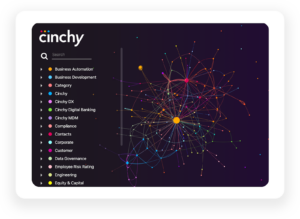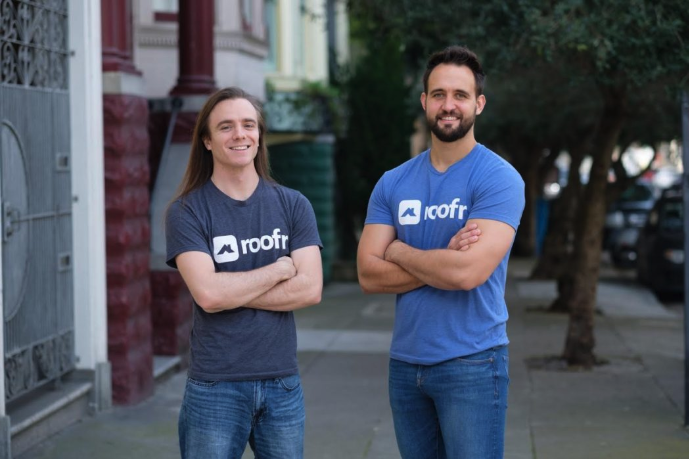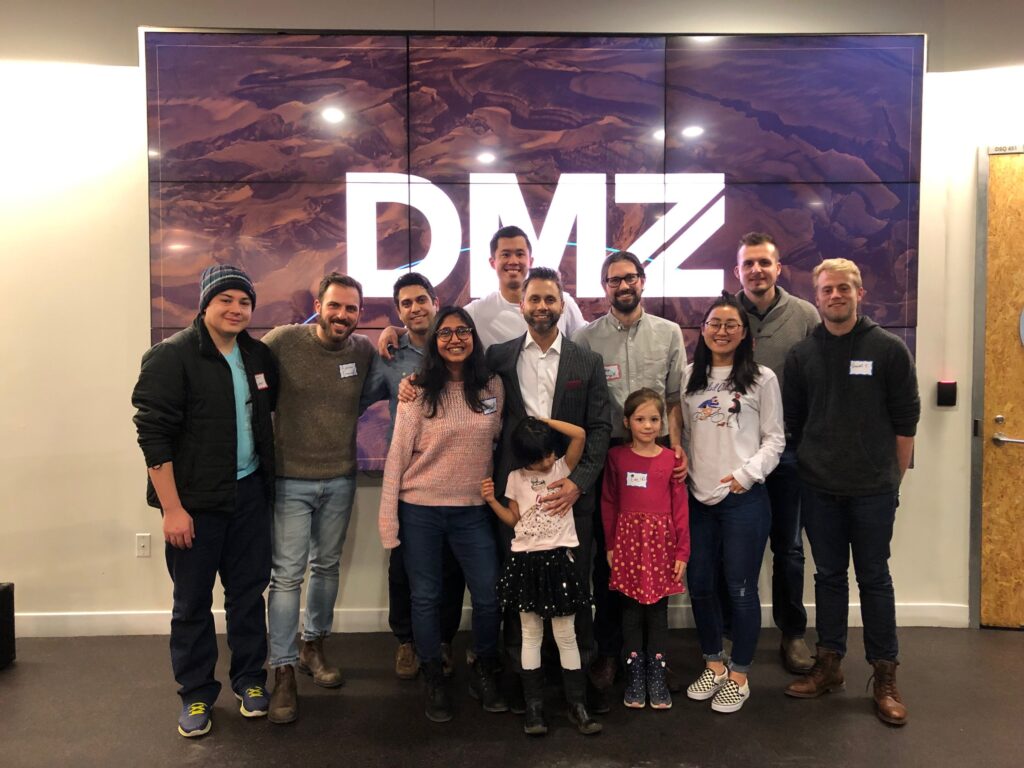DMZ alumnus, Cinchy, is using Data Fabric technology to help Canadian banking and healthcare sectors unlock IT efficiencies and address the immediate impacts of COVID-19
Cinchy’s Data Fabric technology is being used to unlock efficiencies so that banks and healthcare providers can deploy real-time solutions with existing or even reduced IT budgets. How can the tech community and public sector work together to accelerate the delivery of new customer and employee solutions without compromising on data privacy? Keep reading to find out.
More applications mean more data silos
Today, there’s an app for everything – meaning there’s also a data silo for everything. Do you ever feel like your business is drowning in complexity? The proliferation of new applications poses huge problems for organizations of all kinds, across all sectors. As explained by Cinchy CEO, Dan DeMers, data integration can easily consume 50% or more of the delivery budget for new solutions. In an IT model where we are constantly doing this, data integration grows more and more complex over time, and this simply isn’t sustainable for organizations. It’s a waste of time and money.
How data should work
So, how does Cinchy’s technology solve this issue for organizations? Cinchy believes there is an inevitable future about how data should work, and it involves shifting to Data Fabric technology.
Cinchy is an enterprise-grade Data Collaboration platform that merges data management, data protection, and data governance capabilities under one umbrella. It is Data Fabric technology that delivers the data management layer, and it is used to connect data from apps, as well as new data created directly in the fabric, to form a sort of internet of data tables. One of the key benefits of this architecture is that it removes the need to make data copies (a.k.a. integrations) when launching new solutions. Instead, data is “linked”, and this process actually gets faster and more efficient as the fabric powers more solutions. Think of the Data Fabric as generating a network effect for IT delivery where more projects translate into faster and cheaper delivery, not rising costs and complexity.
Why has Data Fabric been gaining so much traction recently? The reason is that organizational leaders are being asked to deliver solutions faster than ever before without being given additional budget or headcount. Therefore, they have been searching to find technologies that increase both speed and efficiency while not putting data privacy and protection at risk. As you might guess, the list of software categories capable of delivering all of these outcomes is short; Data Fabric technology has quickly risen to the top of the list.
Connect, protect, collaborate
Society is moving to a future where data owners, whether individuals or businesses, will demand more control over how their data is used. With conventional approaches, data is effectively managed by making a lot of copies, and, once copied, full control is simply no longer possible. All this changes with Cinchy’s Data Fabric design, where data owners (whether employees, customers, or supply chain partners) are able to grant access permission to fellow fabric users to see, change, approve or delete their data. With no copies of data to chase and protect, these controls become universal in nature and can be set all the way down to a single cell of data.
For large, highly-regulated organizations, the fabric acts as the secure, real-time engine for the delivery of unlimited new solutions with embedded data protection. Again, this not only enables secure, cross-team collaborations but actually accelerates and improves the organization’s IT delivery process. That’s the way it should be.
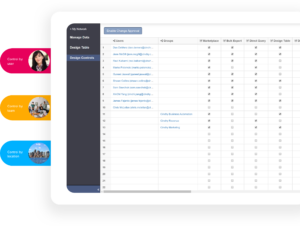 COVID-19: making a difference across industries in the months to come
COVID-19: making a difference across industries in the months to come
During this time, organizations need to meet the sudden demand from employees and customers for new solutions to their needs. In the new COVID-19 world, it’s important that organizations not only address these demands quickly but find ways to do so that are hyper-efficient. For Cinchy’s enterprise and public sector customers, their platform supports this incredible challenge and even provides a competitive advantage when business returns to a focus on growth.
Helping Canada’s financial sector do more with less
All areas of financial services heavily rely on data as a key asset in the delivery of their digital transformation strategies: from paperless banking and accelerated loan approvals to remote staff management and increased service personalization.
There is now more data, and more types of data, than ever – making it more difficult to manage. This is where Data Fabric technology will play a key role in helping the financial sector respond quickly to new demands from customers and employees alike. Banks will need to harness data in the most effective way possible to accelerate the delivery of new solutions for remote workers, secure office spaces, and the and fully-digitized customer experiences. Canadian banks can leverage Cinchy and reap the benefits of its Data Fabric design to achieve data centricity and accurate data extraction for successful decision-making. Data Fabric will be the answer to helping the economy bounce back.
Powering secure, real-time healthcare solutions
The ongoing healthcare crisis raises important questions about the use of personally identifying information (PII). For example, should citizen GPS and Bluetooth location data be used to help augment contact tracers in their incredibly important work to track viral transmission and reduce spread? How can the technology community and public sector work together to respond to the current situation and help society be more proactive when addressing future outbreaks?
COVID-19 has highlighted the need for public health agencies to move beyond legacy data management systems based on Data Sharing/Data Integration and explore new approaches such as Data Fabric technology that improve data protection and IT solutions delivery. These new approaches will support the rapid delivery of large scale solutions ranging from augmented contact tracing to intelligent PPE inventory management, front-line worker support, and secure vaccine research collaborations.
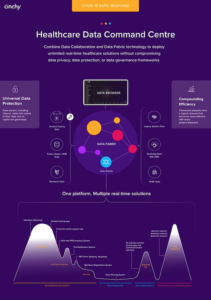
Cinchy’s Healthcare Data Command Centre solution uses Data Collaboration and Data Fabric technologies to help healthcare providers leverage data from sources like legacy healthcare systems, hospital apps and databases, mobile phone apps, laboratory research, third party PPE inventory systems and more. By drawing this data into a central, secure Command Centre where owners retain full control of how their data is used, public health agencies can quickly develop the data models required to deploy the real-time solutions that are so urgently needed in order to address the crisis.
Cinchy believes that it is imperative that public and private stakeholders join forces in order to take advantage of connected Data Fabric design – a made-in-Canada innovation that can be used to help address a global problem without compromising on data privacy or data protection.


